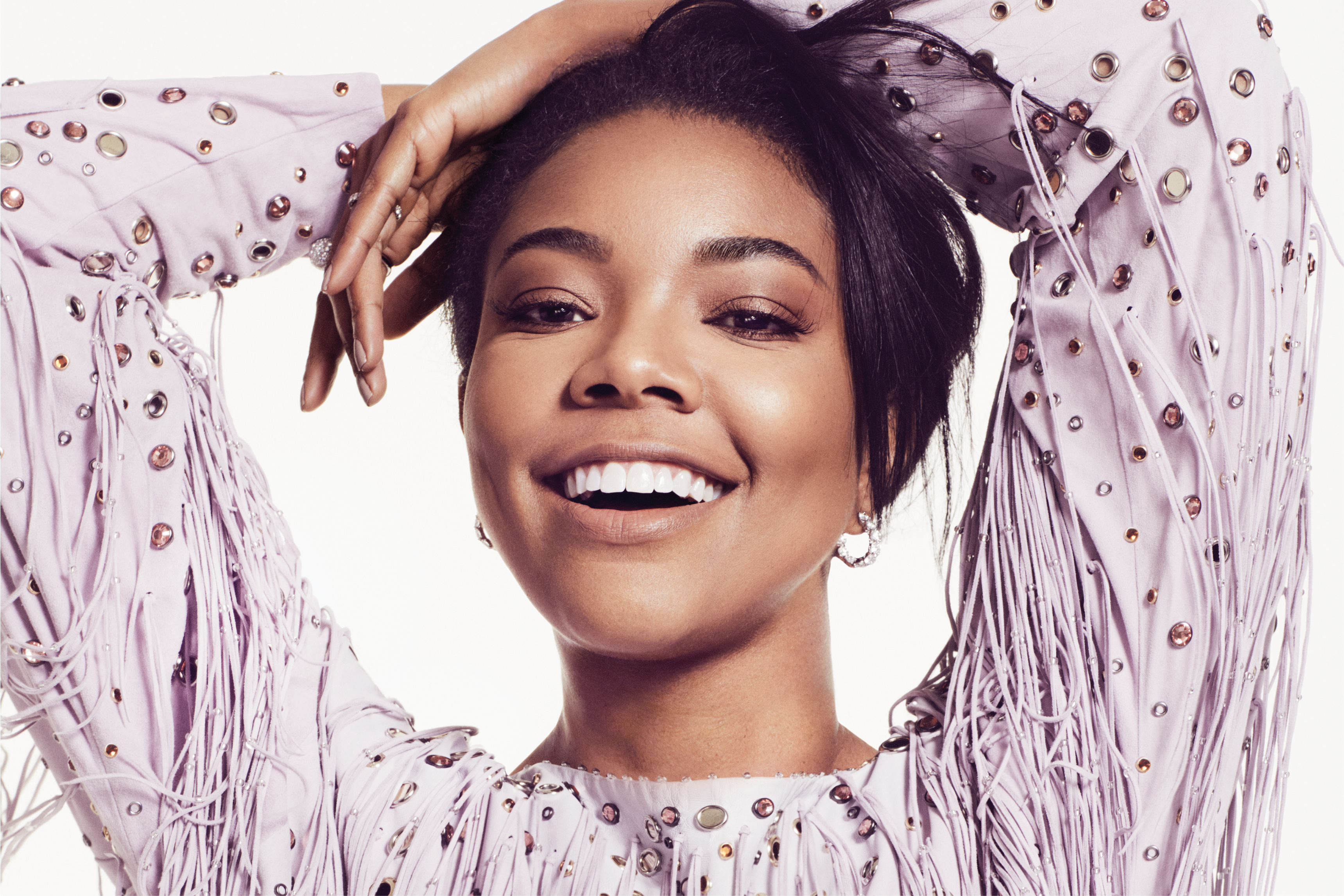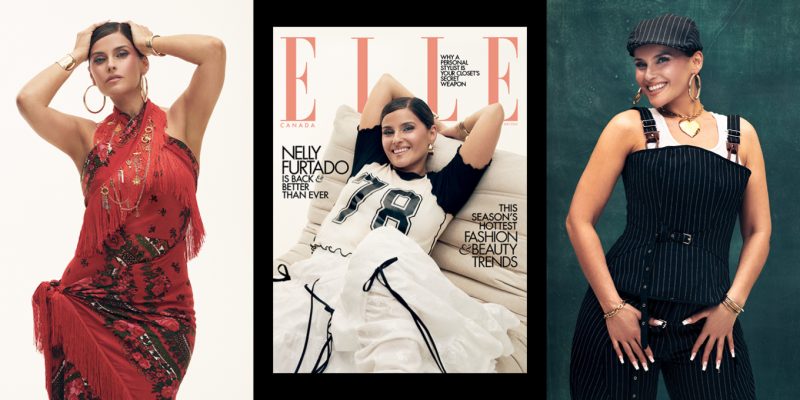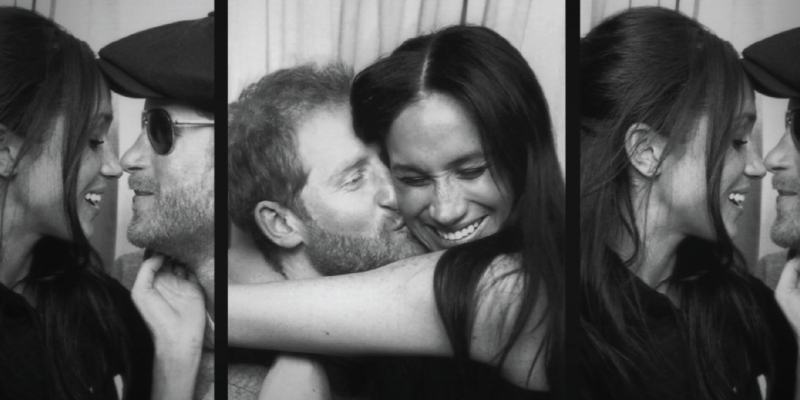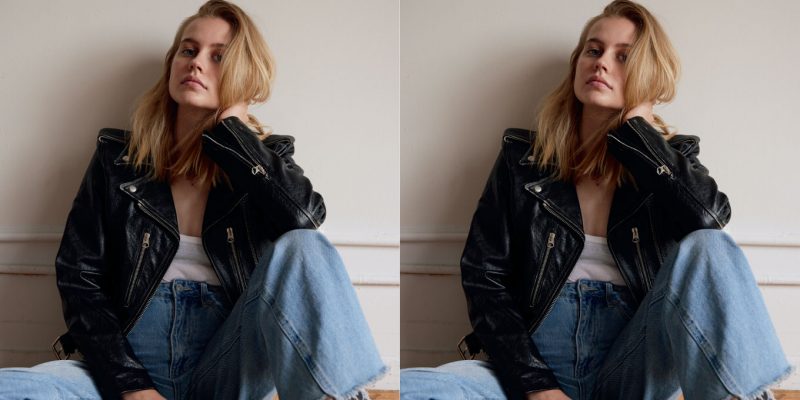Celebrity
EXCLUSIVE: Our full interview with March cover star Gabrielle Union
by : Vanessa Craft- Feb 13th, 2018

Nino Munoz
Gabrielle Union hates being late. Not in the typical low-level way—that frustration that washes over you when traffic is bad or the elevator is broken. Tardiness gives her full-blown, terror-level anxiety. She actually goes numb.
That trait means Union is also uncomfortable when people are late to meet with her. After ELLE’s photo shoot in Culver City, Calif., wrapped early, the 45-year-old Nebraska-born actress suggested we connect at her hotel for our interview instead of staying local. But my taxi cancelled on me. When I didn’t arrive at the expected time, she needed to find ways to stay busy, so she went through her packing list, separating clothes based on whether they needed to go to the dry cleaner, be hung in the closet or go back to her stylist. I know this happened because when we talk about it later, Union admits, in that alluringly straightforward way she speaks: “I have a weird obsession with time. That’s how my brain has to think. It’s a by-product of post-traumatic stress.”
She’s referring to the psychological after-effects of being raped at gunpoint when she was 19 in the back of the discount shoe store where she worked. In her book, the bestselling We’re Going to Need More Wine, she describes the aftermath. “The way my dad looked at me after is still a nightmare. The look was: Damaged. Victim. Guilt. Fear. I was the kid you bragged about. I got great grades. Was the perfect athlete. Blah blah blah. And in that moment, I was damaged.” After the assault, Union stayed in her house for a year. Now, at restaurants she prefers to sit facing the doorway, and when she goes shopping she plans out how to exit the parking lot in the most efficient way possible—including how many left turns she needs to make. “It’s how my brain has been working for 25 years,” she tells me when we’ve settled in on the L-shaped sofa in her suite, outnumbered by fluffy white pillows. “Having a plan and a clear idea of what’s to come—that’s what brings me peace.”
Speaking about trauma is far from easy, which makes it all the more remarkable that Union has chosen to live her life in the open. Her memoir is full of raw yet eloquent—and often very funny—writing, and she normalizes things we have been taught to hide, topics that usually come wrapped in shame or secrecy for women: sexual assault, managing money, infertility—even having to buy Monistat at the drugstore. She is so frank and unguarded that it feels like a subversive act. She frequently speaks to the media about issues that need a spotlight: sexual-assault-victim shaming, for example, or her reaction to, and distancing from, her The Birth of a Nation director and co-star Nate Parker, when a 1999 rape allegation against him came to light after the film’s 2016 release. In an open letter in the Los Angeles Times, she wrote: “My compassion for victims of sexual violence is something that I cannot control. It spills out of me like an instinct rather than a choice. It pushes me to speak when I want to run away from the platform. As important and ground-breaking as this film is, I cannot take these allegations lightly.”
Union, who started her career in television back in the ’90s and made a splash as Isis, the outspoken, intellectual-property-protecting cheerleader in the hit film Bring It On, has set off a cultural chain reaction of story sharing. Women came out for her book tours in the United States in huge, highly emotional droves. She admits it was exhausting at times, but this desperate need for women to unburden themselves to her was ultimately transformative. “There are so many people who are suffering in solitude,” she says. “And when I started offering my story, people felt connected. It’s like a reference guide for those who are suffering or feel isolated. Some stories are helpful, some are just funny, but hopefully it’s that connective tissue that we sometimes don’t have in our lives.”
Although it feels like we are in a new era of openness, isn’t it risky to put everything out there into the universe? That seems very brave, I offer. “No. No,” she says, shaking her head. “It’s a social responsibility, a duty, to say ‘I survived, and this is how you can too.’ That’s just basic human decency. So it’s not very brave.”
I don’t agree, and I say as much. We talk about the women in Hollywood sharing their stories, of #MeToo, of the outrage of Harvey Weinstein publicly challenging Lupita Nyong’o’s account of events. Union opines: “If you’re a woman of colour and you’re seeing how people are responding to these disclosures from all these famous women and to the one black woman—who’s an Oscar winner, Ivy-league-educated, on multiple magazine covers—he’s like ‘No!’ If she’s not believed, if her story came and went, what does that mean for you?”
Union says that because she was sexually assaulted by a stranger, because she didn’t accuse someone at her job, or at school, or in the community, her character was never directly called into question. “I know many women—or knew, I should say—who complained about a co-worker, a producer, a director, who actually dared to have a production adhere to the nudity contract that everyone freaking signed…they were deemed difficult, bad eggs. When I say I literally never heard from them again, it’s like they just fell off the face of the earth. I never heard from them again. Ever. It’s what our industry, and the country, the world, does with women who dare to buck the system and ask for accountability. This is where real bravery comes in. Who’s willing to stand up when you have everything to lose?”
But surely she has something to lose? Potential film roles? Being branded as difficult? No, she counters decisively. “I can stand up. I have nothing to lose [because I have financial security]. I only gain. It feeds my soul to offer people something and be a voice for people who aren’t quite there yet.”
Union has flagged the importance for powerful movements like #MeToo to work to elevate all women’s voices, not just those coming from privileged positions. “We need equity,” she says. “Studies have shown that when there is real equity in the workplace, sexual harassment claims, a lot of these issues, drop dramatically. That’s one thing. Then, recognition outside Hollywood royalty or the corporate world: farm workers, domestic workers, anyone in the service industry, the voiceless. People in the clergy. People who aren’t in unionized positions. We’re all women, we’ve all been suffering—everybody’s got to be in the same line to be seen and each story recognized in its own place. You have to recognize and identify people and hold them accountable in every facet of life.”
By now we’ve been chatting for more than an hour and the sun is beginning to set behind the Hollywood Hills, casting a sepia tone over the room. Union, who is wearing the soft-pink jumpsuit she wore to our photo shoot, gets up to turn on some lights so we can continue. She clearly isn’t watching the clock; this generosity of time—and no PR person or agent present—is notable.
Union recognizes her own privilege but doesn’t take it for granted, managing her financial resources with the attention of a woman who understands the value as well as the power of a dollar. She’s seen people in the business go for flash and glam over smart money management, but for her, being fully financially independent is a key aspect to her well-being. “From my first job, I’ve functioned like each job is my last. What can I afford if all this goes away? So I don’t buy anything unless I can maintain it. Being penniless is way scarier than not having the right car.” She laughs, adding: “It’s L.A., we’re in traffic. Who’s seeing your car?”
That explains why, when I arrived and “oohed” and “ahhed” over the penthouse suite, she let me know it was a hookup through a friend. She simply doesn’t roll that way. Shrugging, she says: “I don’t believe anyone should put themselves in a financial bind to be something for other people who don’t care about them. Your barometer should be ‘Don’t try to impress people who wouldn’t give you a kidney.’”
In We’re Going to Need More Wine, Union talks about her husband, NBA star Dwyane Wade—they married three years ago in a black-and-white-themed wedding in Miami, and she is an involved stepmother to his children. Over the course of their relationship, Union says, she has gone through several failed IVF cycles and suffered eight or nine miscarriages. “I’d never wanted kids, but then I became a stepmom and there was no place I’d rather be than with them.”
She and Wade have differing perspectives when it comes to money. Her stepson Zaire just turned 16, and she thinks his first car should be something along the lines of a Honda Accord. “A used one!” she says, with a grin. “My h husband says he had to drive a hooptie [growing up] and he doesn’t work this hard or sacrifice this much to put his kids in the same. But once we’re not paying for their lives, what happens?” Union sees herself as tough but fair. She says she is happy to pay for her niece and nephews to go to university but only their classes and maybe their first-year dorm. That’s it. “I went to school, worked and had an internship. I shopped at the 99-cent store! I had one-ply. That’s right—I actually made contact with my butt. Because that’s what I could afford.”
Smart, financially savvy and fun. That’s the Gabrielle Union brand. Her hit show on BET, Being Mary Jane, which she stars in and executive-produces, wraps filming this summer after four seasons. It’s bittersweet. “It feels like the end of an awesome Sunday,” she admits. She also has her own production company now and just sold a pilot for a Bad Boys TV spinoff to NBC and has a new film, Breaking In, out in May. On-set earlier that morning, she breezed through the shoot, hitting dozens of poses with ease—happy, confident, sexy, strong—coming alive when Luther Vandross and En Vogue came on the speaker system. Just before noon, she showed she takes her book title seriously when she sent an assistant out for wine.
Our camera isn’t the only one trained on Union: Almost 10 million people follow her Instagram exploits, from workouts to glam vacations to fashion eye candy. As she’s grown, so has her personal style—there’s no more dressing to play it safe. “When it came to my style, I was dressing to be ‘good enough’ but not so weird that I would be flagged as ‘when bad clothes happen to good people,’” she says. But around the time she turned 40, Union decided she wanted to live authentically across all areas of her life. “In the past couple of years, as I narrowed down who the heck I am—what I like, what I don’t like, what excites me, what I just find wack—my style has evolved. ‘Well, what if somebody doesn’t like it?’ Now? I don’t care.” Today, she’s as comfortable wearing brands that aren’t mainstream—like Ellery, Off-White, Baja East and Thom Browne—as she is sporting traditional luxury brands like Hermès and Louis Vuitton. While the labels may reflect a celebrity’s reality, that moment of learning to be comfortable in your skin, in your clothes, in your choices, is one that has a wider resonance—not least because it’s about learning how to speak up for yourself and to trust your voice, something that can be tricky when women who do so are often labelled as “difficult” or “intimidating.”
Although Union continues to act, her move into producing will offer opportunities for her confidence to shine. She recalls a time she flew into L.A. for a high-pressure production-deal negotiation and just couldn’t bring herself to use the “special voice” and tone women (in particular, women of colour) have to use to not sound aggressive during such moments. (You know the one—where you speak with the inflection of a question and raise your eyebrows so you look less threatening.) “I was tired. My eye was twitching. They took too long to circle back to my opinion, and I lost it,” she says. “I spoke my truth, but I was sure I really blew it and lost that deal.” Plot twist: By the time her plane landed in San Francisco, they’d agreed to her terms.
“When I spoke in my most authentic voice, I got what I wanted—I got what I deserved,” she says as we bring our conversation to a close. “And I’m 45. I think I’ve been in this business 22 years using that dumb-ass voice that I thought was helping me, and I’m sure it did at certain times. But I wonder how my career could have been different if I had let that real voice out.” There’s no doubt as to the impact this formidable woman’s work—and voice—is already having on the future.
Newsletter
Join our mailing list for the latest and biggest in fashion trends, beauty, culture and celebrity.
More from Celebrity
Read Next

Fashion
Are Fashion Brands Getting Greener?
While the fashion industry is making a lot of noise about being more sustainable, a closer look shows that its earth-friendly commitments are often more illusion than reality.
by : Marouchka Franjulien- Apr 19th, 2024

Beauty
What Beauty Packaging Is Actually Sustainable?
We sought out leaders in the field to help us get to the bottom of the blue bin once and for all.
by : Victoria Christie- Apr 19th, 2024

Culture
This University Elevates Women to New Professional Heights
You shouldn’t have to pause your life to move forward in your career.
by : ELLE Canada- Apr 16th, 2024




